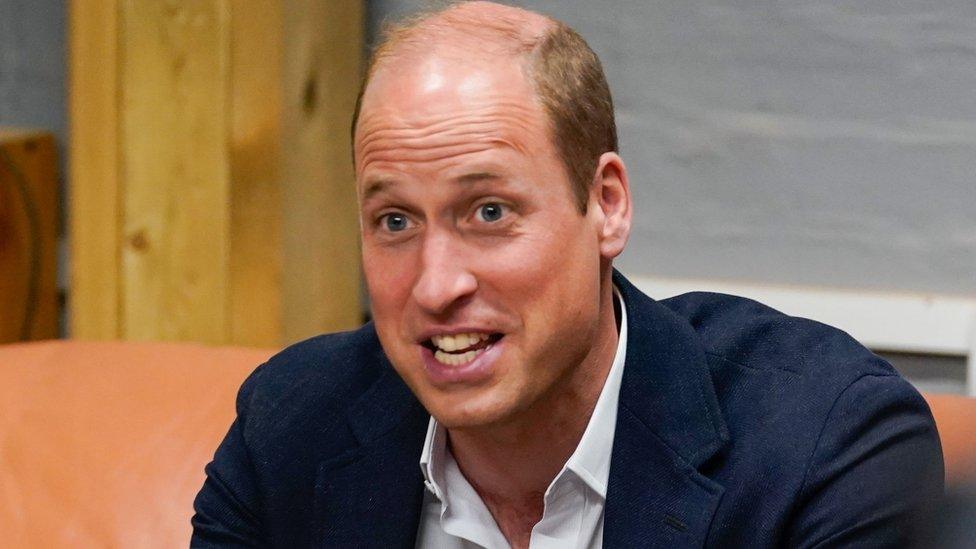'No magic wand' to end Sheffield homelessness, charities warn Prince William
- Published
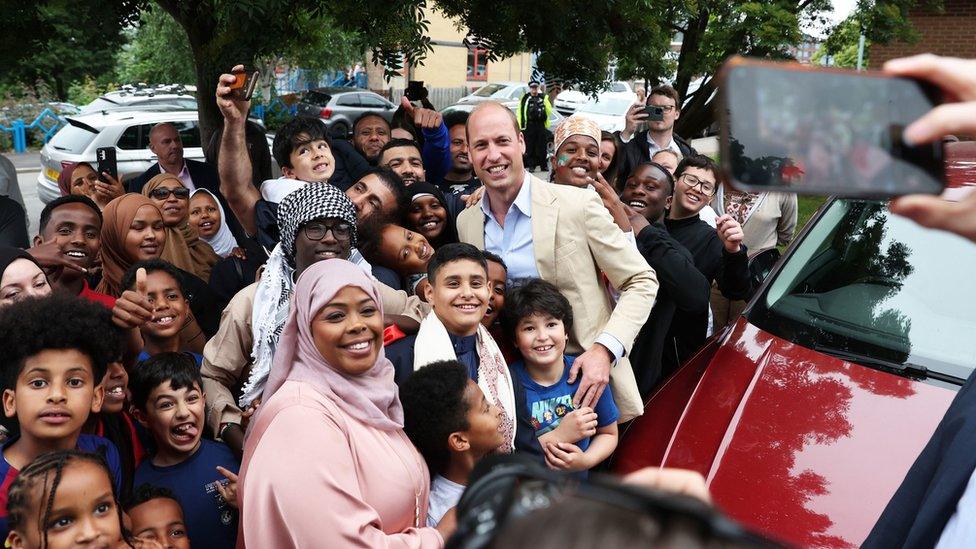
Prince William launched his homelessness prevention programme in Sheffield recently
Homelessness charities in Sheffield have said there is no "magic wand" to fix the problem after the city was chosen as a location for Prince William's campaign to tackle the issue.
Sheffield is to get £500,000 as part of the Prince's Homewards project .
It is not yet clear how the money will be spent but the prince's foundation said it would support the creation of a "tailored plan" for the city.
Sheffield charities have told the BBC they welcome the prince's intervention.
The south Yorkshire city has the 16th highest rate of homelessness among towns and cities in England according to data from the Department for Levelling Up, Housing and Communities.
Out of every 1,000 households in the city, 2.84 were homeless between October and December last year, the statistics show.
That is higher than the national average of 1.57, but well below Manchester, which has the highest rate of 4.97, and Portsmouth's 4.69.
'Worrying increase'
However, the numbers have been rising fast in Sheffield.
More than 4,000 people or families applied with Sheffield City Council to be registered as homeless last year - that is up 500 on the previous year and the highest figure ever recorded by the authority.
The number of households in temporary accommodation also rose from 437 to 575 last year, which the council said reflected "a worrying increase in the number of people living in insecure housing".
Other local authorities across the country have reported similar rises as living costs push more people into poverty.
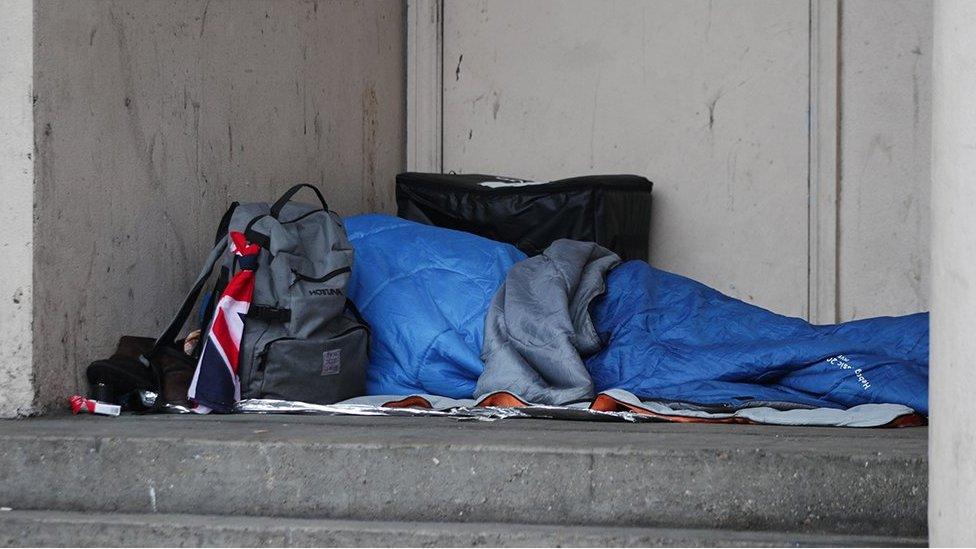
More than 4,000 people presented as homeless to Sheffield City Council last year
Daryl Bishop, chief executive of Ben's Centre, a Sheffield charity which supports people affected by homelessness, said the cost of living crisis had "ramped things up".
"There are a lot people in poverty and that poverty can lead to homelessness and instability," he said.
"A few years ago, we started charging people's mobile phones, just as a little favour. Now it's become quite a significant service because people can't afford the electric bills and they need their phone to contact their housing worker or their doctor."
Tracey Nathan, strategic lead for Shelter Sheffield, part of the national campaign for homeless people, said there was "a misconception" that homelessness "happens to other people, when actually so many people are vulnerable".
"It's far-ranging, the impact of homelessness, and it's very, very difficult to get over," she said.
Burngreave Foodbank handed out record numbers of food parcels last winter.
Rachel Snow, the foodbank's manager, said she had seen an increase in families with children needing support.
"December, January, February were particularly bad. We doubled what we were giving out last year," she said.
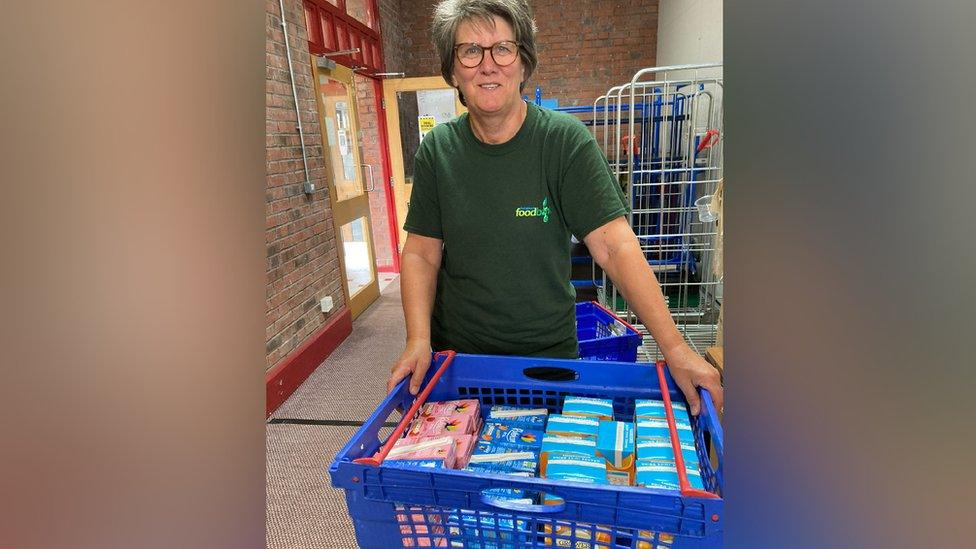
Rachel Snow said more families with children were needing support from Burngreave Foodbank
Prince William has said he wanted Sheffield, and the Homewards project's other five locations, to be "on a path to ending homelessness for good" within five years.
He said he wanted to make homelessness "rare, brief and unrepeated".
How that hugely ambitious aim would be pursued is not yet fully clear.
But the Prince of Wales's royal foundation said it would support a "locally-led coalition" and provide "new space, tools and relationships to showcase what can be achieved through a collective effort".
Sheffield City Council said the project would focus on the "hidden homeless", including families in hostels and shelters, with the aim of supporting people before they were at risk of losing their homes.
The city was chosen for the programme partly because of its disproportionate number of homeless people from black and minority ethnic backgrounds, with early work set to focus on diverse communities and areas with high deprivation.
Homewards said it would support "committed individuals, organisations and businesses" who would work together to "create and deliver a tailored plan to prevent homelessness in their areas based on local needs and local expertise".
The foundation also promised £500,000 start-up funding and "access to an unprecedented network of best-in-class expertise, partners and funders".

Prince William visited a youth project in Burngreave, Sheffield, as part of his launch of his Homewards initiative
Tim Renshaw, chief executive of the Archer Project in Sheffield, which helps homeless and vulnerable people in the city, said Prince William's involvement was "fantastic" and could "elevate" the issue of homelessness.
"He has a level of profile and a level of influence that goes beyond politics," he said.
"Having that profile come in and say, 'let's really look at this as an issue' can only be good."
However, Mr Renshaw said the ambition to end homelessness in five years was "not realistic" given its "complexity" and "the trauma background that often lies behind it".
But he added he hoped the project would see "the city getting to grips with what the real stories of homelessness are".
He added: "Homelessness begins way, way before people get to the streets.
"Homelessness affects so many of the interactions between a person and the systems of the state - the health services, the benefits services, the routes into work and education, all those sorts of things."
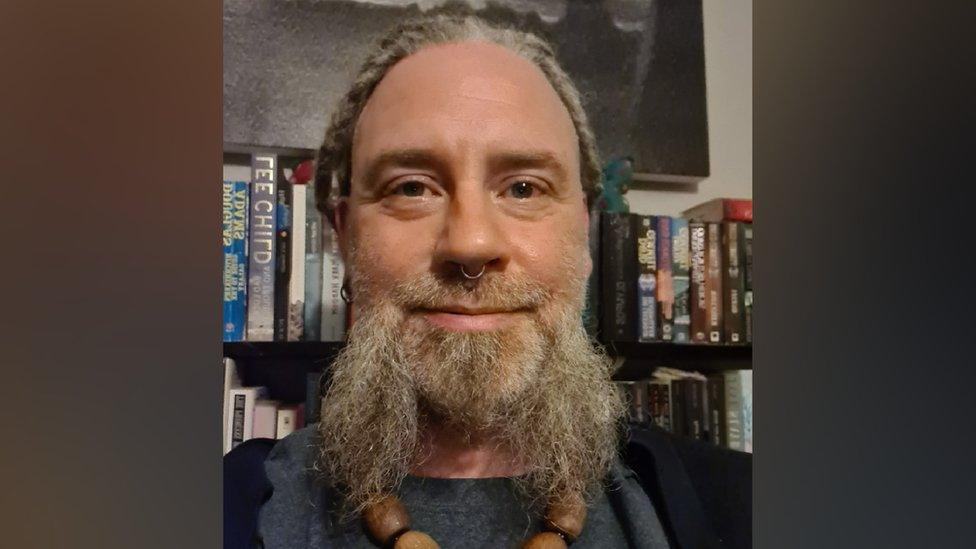
Daryl Bishop, from Ben's Centre in Sheffield, said the cost of living crisis was pushing many people into poverty
Meanwhile, Daryl Bishop, chief executive of Ben's Centre in Sheffield, agreed the project's aims were optimistic, warning there was no "magic wand" to end homelessness.
"Even the word homelessness is so convoluted with different types of issues," he said.
"There are so many different categories: there are people who have jeopardy around their tenancy; we've got the street homeless; we've got sofa surfing."
But, Mr Bishop added: "Certainly, putting money into it and putting the spotlight on what people are experiencing - the cost of living crisis and all the things that are driving people into poverty - has got to be a good thing.
"There's hopefully going to be some attention on what these people are going through and not just seeing them as a problem."

Follow BBC Yorkshire on Facebook, external, Twitter, external and Instagram, external. Send your story ideas to yorkslincs.news@bbc.co.uk, external.
Related topics
- Published27 June 2023

- Published26 June 2023
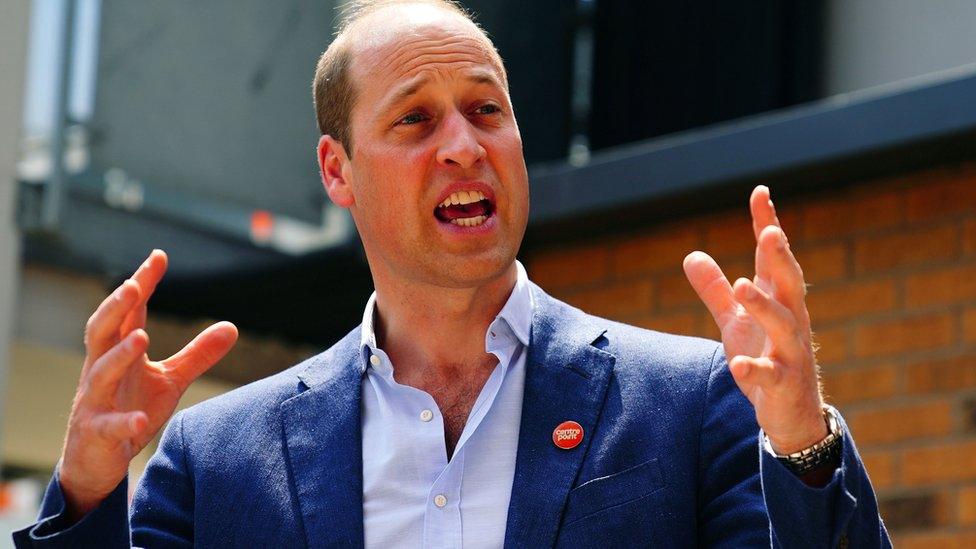
- Published26 June 2023
